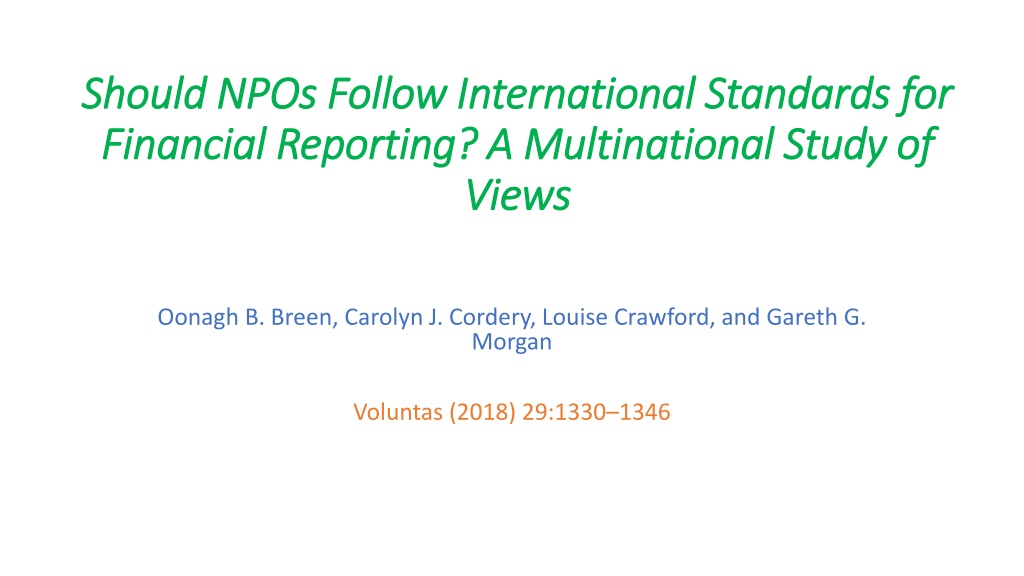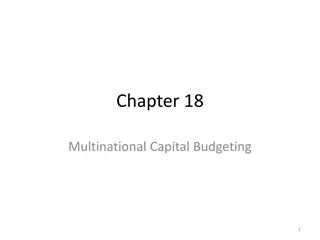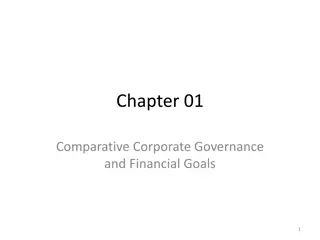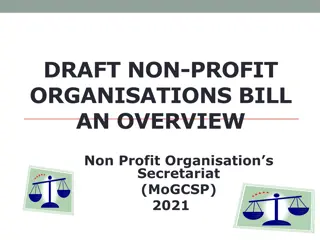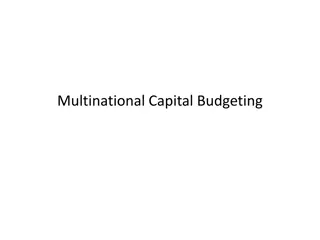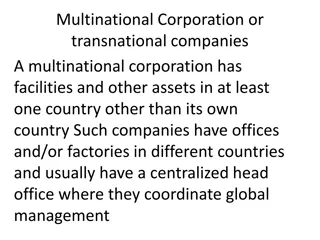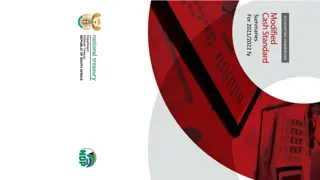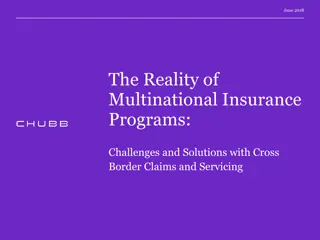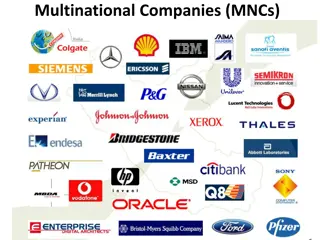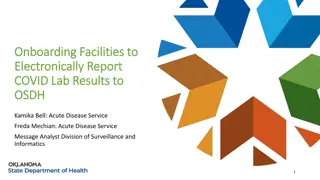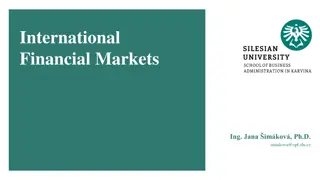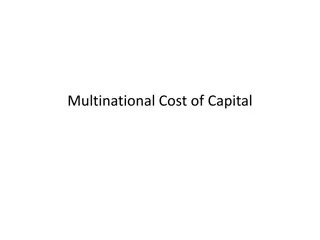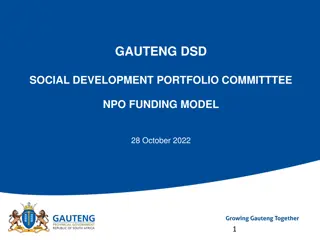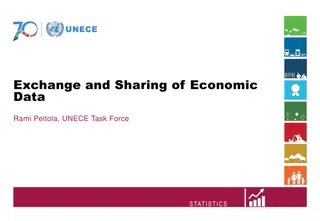International Standards for NPO Financial Reporting: A Multinational Study
Globally, various regimes regulate NP financial reporting, with key issues differing from commercial accounting. The study explores the need for international NPO-specific standards, highlighting diverse approaches and the moral legitimacy argument for consistent standards.
Download Presentation

Please find below an Image/Link to download the presentation.
The content on the website is provided AS IS for your information and personal use only. It may not be sold, licensed, or shared on other websites without obtaining consent from the author. Download presentation by click this link. If you encounter any issues during the download, it is possible that the publisher has removed the file from their server.
E N D
Presentation Transcript
Should NPOs Follow International Standards for Should NPOs Follow International Standards for Financial Reporting? A Multinational Study of Financial Reporting? A Multinational Study of Views Views Oonagh B. Breen, Carolyn J. Cordery, Louise Crawford, and Gareth G. Morgan Voluntas (2018) 29:1330 1346
Globally Globally, diverse and numerous regimes by which jurisdictions regulate NP Financial Reporting. Currently, there is no body that develops international NPO-specific standards. Key issues for NP accounting that differ from commercial accounting: * fund accounting issues; * Revenue treatment of non-exchange transactions; * recording of fundraising expenses; * treatment of heritage assets; * narrative reporting requirements.
Global Outlook Global Outlook on various regimes by which jurisdictions regulate NP Financial on various regimes by which jurisdictions regulate NP Financial Reporting. Reporting. Countries with no general requirement for NPOs to issue any kind of GPFR in the public domain Countries where there is no regulation on the publication of financial reports except in terms of the legal structure of an entity Countries with a sector-neutral approach, requiring NPOs to follow IFRS with no consideration of NPO-specific reporting issues. Countries, where for tax reasons, some measure of reporting in the public domain is mandatory for all recognised NPOs. Countries with NPO-specific financial reporting requirements made compulsory for charitable organisations regardless of legal form Countries with an NPO-specific financial reporting framework which is encouraged but not mandatory.
The Moral Legitimacy Argument Colonial accountancy Raised Accountability Sanction dependent Comparable Results Admin burden & expense Consistent Standards AGAINST FOR Should NPOs Follow International Standards for Financial Reporting?
International Survey 2013 179 countries; The Study 63,000 words of free comment CCAB 605 usable responses
Research Findings on Rationale for NPO Standard Research Findings on Rationale for NPO Standard 100 90 80 70 Respondents 60 50 40 Purpose 30 20 Usefulness 10 0 Accountability Stewardship Availability Useful to have Should follow Hard to follow Rationale International NPO Accounting Standard
Research Outcomes Stakeholder evaluations mostly positive, indicating international financial reporting for NPOs is likely to attract moral legitimacy Moral-consequential legitimacy will be granted if resulting financial reporting information meets NPO- specific accounting demands and results in the production of consistent, transparent, reliable and understandable information A majority of stakeholders will likely grant moral- procedural legitimacy as they perceive NPOs should follow internationally converged financial reporting standards subject to . . .
Research Outcomes Research Outcomes Stakeholders did raise concerns relating to the capacity and expertise of NPOs to implement international financial reporting.. Fewer than half of respondents were in favour of imposition of mandatory international standard to NPOs with incomes below US $500,000. So, if there is a moral obligation on NPOs, fundamental to their accountability, to follow an international set of standards, such an obligation is not widely accepted in relation to small- and medium- sized NPOs.
